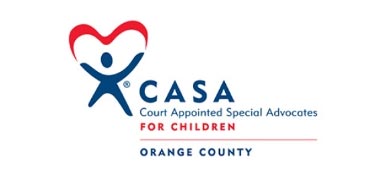
On January 1, 2019, a new law went into effect making significant changes to the way the mediation process works in California. The updated statute, passed by the State Legislature and signed into law by Governor Jerry Brown in September, impacts mediators, attorneys, and their respective clients.
The specific legislation, known as Senate Bill 954, amends the California Evidence Code, specifically Section 1122, and adds an additional provision listed as Section 1129. Both sections relate to the mediation process, and it applies no matter whether you are mediating a trustee removal, contested conservatorship, Will or trust validity contest or an accountant filed by a trustee.
The primary focus on the new law really solidifies the idea that everything that occurs at mediation will be kept confidential. These measures are so severe they now require lawyers who represent clients in mediation proceedings to provide written disclosures explaining confidentiality rules. Clients must be on notice that information gained during that process, no matter how germane or useful to their case, cannot be used at trial or elsewhere.
Current California law (as well as public policy) states that any communications occurring in anticipation of and during mediation are confidential and are therefore not admissible as evidence in court proceedings. The idea is that parties should be free to speak freely in an attempt to resolve a dispute without those words coming back to haunt them in the event mediation fails. Without an assurance of confidentiality, parties would abuse the mediation process by treating it as a warped form of discovery instead of an honest effort to avoid litigation.
Despite the existing requirements under California law, clients who have not been adequately informed by their counsel may not know that most communications by and between the parties, their attorney and the mediator are considered confidential and should not be repeated to third parties outside of mediation.
The exact content of the required disclosures appears in the statutory language passed by the Legislature, which means the format and language should be consistent statewide. Failure by a lawyer to adhere to these standards could result in the disclosures being ruled null and void by a court.
All disclosures must be on a separate page from any other documents or forms, in 12 point font, printed in the client’s preferred language. Most lawyers will likely provide the disclosures in both English and Spanish to remove any confusion as to whether or not the client clearly understood what they were being asked to sign, but bilingual forms are not required under the law.
Finally, the disclosure forms must be signed and dated by both the client and the attorney. The statute requires lawyers to “obtain a printed acknowledgment signed by that client stating that he or she has read and understands the confidentiality restrictions.”
The new law fails to provide a specific remedy for failing to comply; in fact, the statute explicitly states that failure to provide the required disclosures does not invalidate an agreement reached through mediation. Instead of negating a negotiated mediation agreement, the lawyer may subject to discipline after the fact.
Along these lines, the new law closes what many legal scholars considered to be a loophole for lawyers who fail to properly inform clients about the confidential nature of the mediation process. The issue first arose in a 2011 California Supreme Court case, Cassel v. Superior Court (2011) 51 Cal.4th 113, in which the Supreme Court rules that private communications between lawyers and their clients relating to mediation must remain confidential, even in a malpractice lawsuit filed by the client claiming their lawyer obtained consent to settle the case in bad faith. In holding that the attorney-client communications made during mediation remain confidential, the ability of the client to prove professional negligence after the fact becomes nearly impossible.
To close this potential loophole, SB 954 adds subsection (a)(3) to Section 1122 of the California Evidence Code. This subsection specifically allows a communication, document or writing related to the attorney’s compliance with the disclosure requirement to be admissible in an attorney disciplinary proceeding. As a result, any otherwise lawful settlement obtained through mediation remains in place, and the client’s remedy would be to pursue disciplinary action against their attorney for any professional negligence occurring during the mediation process.
The practical impact of this requirement on the client will be that no matter how much money they spend trying to settle the case or work up the case for mediation by exchanging useful information with the other side, none of that will directly benefit them at trial in the event the case does not settle. This may have the opposite effect of prompting people to settle in that people may just not bother to go to mediation in the first place.
Case #1 – Case of the Dishonest Trustee
We represented a family initially for all their estate planning. We represent all members of the family who is tight-knit and all participants in a single long-standing family business. We helped them transition to a new team after they were taken advantage of by an advisor and confidant of many years. They felt betrayed and their top priority was to get everything out of his hands. Although I firmly believe they would have eventually suffered some damages and an attorneys fees award from this man at trial, it would have been uncollectible because he was not “collectible” in that he either removed assets from his name or had no resources. Once we got disclosure on transactions and forced him to file an accounting with the court, we were able to negotiate an entire waiver of his fees for years in exchange for an immediate step- down and resignation rather than take our Petition to Remove and Surcharge the Trustee and their Accounting Petition to trial.
Case #2 – Creative Restructuring
We were also able to restructure the ongoing income to the trust in question during the pendency of the dispute to ensure that this bad actor did not have access as a trustee to any of the family business funds for purposes of funding his own defense. By representing the family holistically we could advise them as to how to appropriately redirect capital without breaching their duties to the limited partners to mitigate ongoing damages.
Case #3 – The Trustee Who Would Not Let Go…Until We Came Along
Recently a colleague brought our firm into a case to deal with a potential dispute against their sister, the sole trustee who had failed to distribute ANY of the more than $70 million dollars of real estate assets more than four years after the death of their parent. Because this was a complex case which had a partnership, trustee, and tax issues we collaborated with four other law firms. The clients began receiving their first quarterly distributions of income from the trust owned partnership within 60 days of our firm’s involvement and their first $1 million of principal distributions within 60 days of that. Now, less than 10 months later our clients have in their possession several million dollars of real estate which are producing income directly to them in addition to millions of dollars of cash distributions. We have also reduced to writing a plan for the complete dissolution of all trust-owned businesses by the end of the year. While we had to file a Petition to Remove Trustee in court to prompt action, we pride ourselves on never appearing in court on this matter whilst still able to get an amazing result for the client. We also must give praise to all counsel involved for working collaboratively towards a common goal and immediately understanding the need to act fast to save their client from imminent liability.
Every day we close probates, complete estate plans and administrations and conclude business transactions but these are just three examples of the great success we have had in settling cases in mediation.
In most cases, a settlement is preferable over litigation. Taking a case all the way through the court system usually requires considerable amounts of time, money, and energy; this is why the mediation process can often be so useful. But as with any legal process, there are essential rules associated with mediation that your lawyer needs to make sure you understand before proceeding. With the passage of SB 954 into law, attorneys will need to do their due diligence by disclosing everything their clients need to know in order to make informed decisions about their case.
Disclaimer: This article is intended to provide a general summary of laws in the State of California and should not be construed as a legal opinion nor a complete legal analysis of the subject matter. Noelle Minto is an attorney at NM Law, APC in Tustin, California, a law firm specializing in Trusts & Estates and Business Transactions.
Testimonials
Charities We Support
We dedicate pro bono time, volunteer services, and a percentage of our gross revenue to these organizations. In 2023, we sponsored a refugee family of five to come to the United States and start a new life.
Each year our law firm decides as a group which charities to assist with our time, money, and expertise. Please feel free to click on any of the charities below and make a donation of your own.


















